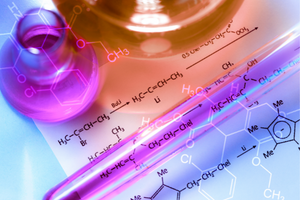Among the criteria for classifying chemical reactions is the classification according to the energy effect. Therefore, we can distinguish, among others, energy reactions, the course of which requires energy supply – endoenergetic reactions. Knowledge of the mechanism of reactions allows not only to better understand the reality, but also to improve and develop a number of different areas.

Endothermic process broken down into prime factors
We are not always aware of how many different chemical reactions there are in the world. Among them, some are endothermic processes. To carry them out, it is necessary to provide the right amount of energy, most often in the form of heat. Thus, endothermic processes do not occur spontaneously – they can be initiated by applying energy into the system.
Often, endothermic processes are also called endoenergetic processes. In the process, the enthalpy of the system changes (finally, the enthalpy of the reaction products has a greater value than the enthalpy of the reactants). The temperature of the system is often lowered. This phenomenon can be easily observed, for example, by performing the so-called cooling mixtures. These are mixtures of specific substances (with the appropriate mass ratio), which, when creating a solution, absorb energy from the environment and cause the drop of temperature. An example of a cooling mixture is the combination of water with ammonium chloride in the ratio 10:3.
Endothermic process versus exothermic process
Endothermic processes and exothermic processes (endoenergetic and exergonic, respectively) are two types of reactions during which the energy of the system changes. In contrary to endothermic processes, exothermic processes release energy from the system in the form of heat. Exothermic processes may occur spontaneously. They are characterised by a decrease in enthalpy due to loss of heat to the environment. A classic example of an exothermic reaction is the combustion of, for example, gas in a stove, or the use of the exothermic process in small, gel heaters.

Endothermic process – examples
Photosynthesis
Photosynthesis is an excellent example of an endothermic reaction in daily life. It is one of the most important biochemical processes on Earth. This process provides oxygen as well as organic compounds being a source of energy for animals and humans. Simply put, photosynthesis is the process by which water and carbon dioxide are converted into oxygen and glucose. This reaction takes place with the participation of light energy. Light energy is supplied to the reaction system, which is a characteristic element of an endothermic reaction. Without the supply of energy from the sun, photosynthesis does not occur.
Ice melting
Ice melting, i.e., the transfer of water molecules from a solid (ice) to a liquid (liquid water) phase, is an example of a phase transition. Due to the energy effect, it is an endothermic transition, i.e., it takes place with the absorption of energy from the environment. Energy from the outside (in this case the temperature above 0 ᵒC) is necessary to initiate the melting phenomenon.
Solid carbon dioxide sublimation
Sublimation, like melting, is a phase transition. In the case of sublimation, a solid changes directly into the vapour phase (omitting the liquid phase). Sublimation of solid carbon dioxide (popularly known as dry ice) occurs according to the mechanism of endoenergetic transformation. During the sublimation of dry ice, i.e., its transition directly into gaseous carbon dioxide, a large amount of energy from the environment is absorbed.
Cake baking
The production of home-baked pastries is an excellent opportunity to observe the endothermic reaction. One of the ingredients of a typical dough, i.e. baking powder, consists of, among others, ammonium bicarbonate. By putting the cake in the oven, we provide it with heat. Under its effect, calcium bicarbonate begins to decompose into gaseous components and thus the cake raises. During such a reaction, the change in enthalpy is positive, so it is an endothermic transition.
Endothermic processes in industry
Hydrogen production
Hydrogen is often referred to as the fuel of the future. There is a lot of truth in that statement. Currently, it is obtained on an industrial scale by steam reforming of methane. Steam reforming of methane consists in reacting this raw material with water vapour. A strongly endothermic reaction, it takes place at high temperatures of 650–900 ᵒC. As a result of this process, a mixture of hydrogen and carbon monoxide is obtained, called synthesis gas. Then, hydrogen can be extracted using a technique known as Pressure Swing Adsorption, or PSA for short.
Quicklime production
In industry, quicklime, i.e. calcium (II) oxide, is obtained by burning limestone (calcium carbonate rock). It is a reversible and endothermic process. As a result of the burning (thermal dissociation) of limestones in shaft furnaces, not only quicklime is obtained, but also carbon dioxide. Both products are used, for example, in soda plants. Carbon dioxide is necessary for the carbonisation of the brine, while quicklime is used to produce calcium hydroxide, which is then routed to the brine purification.
